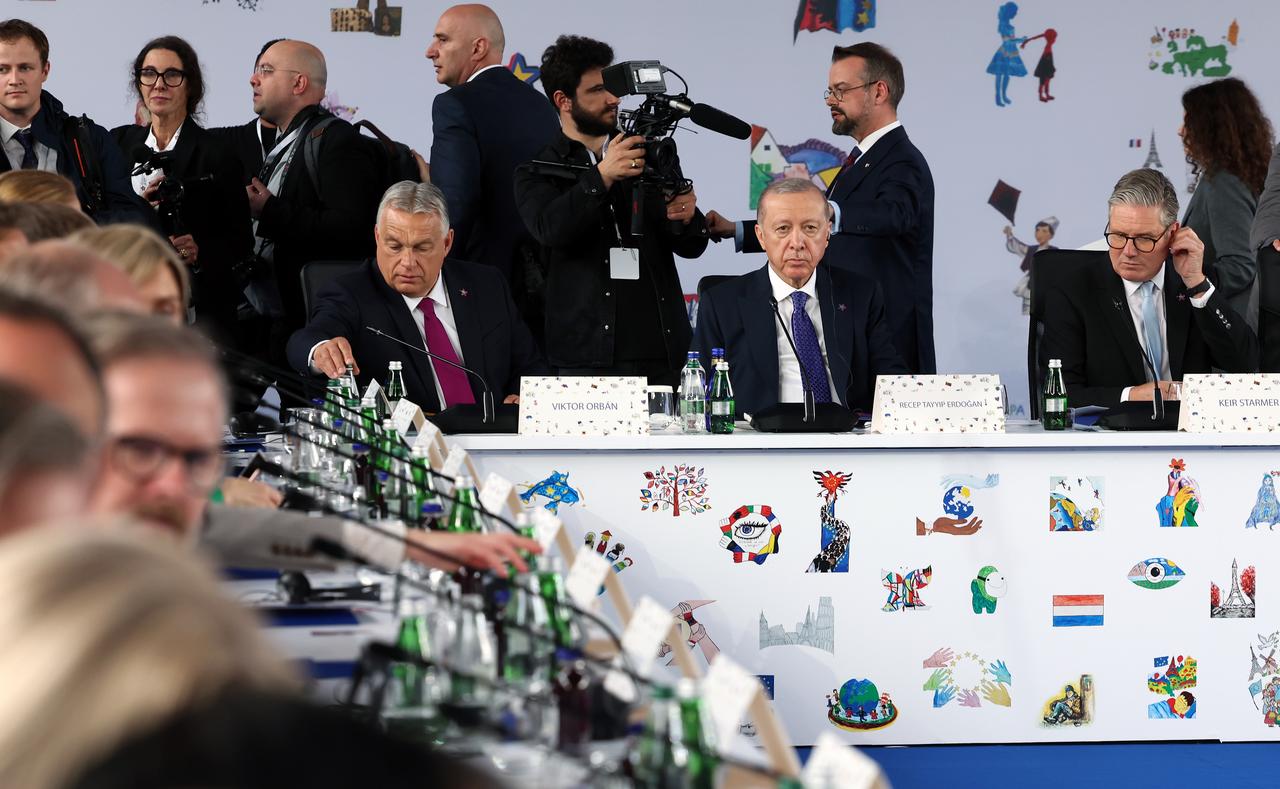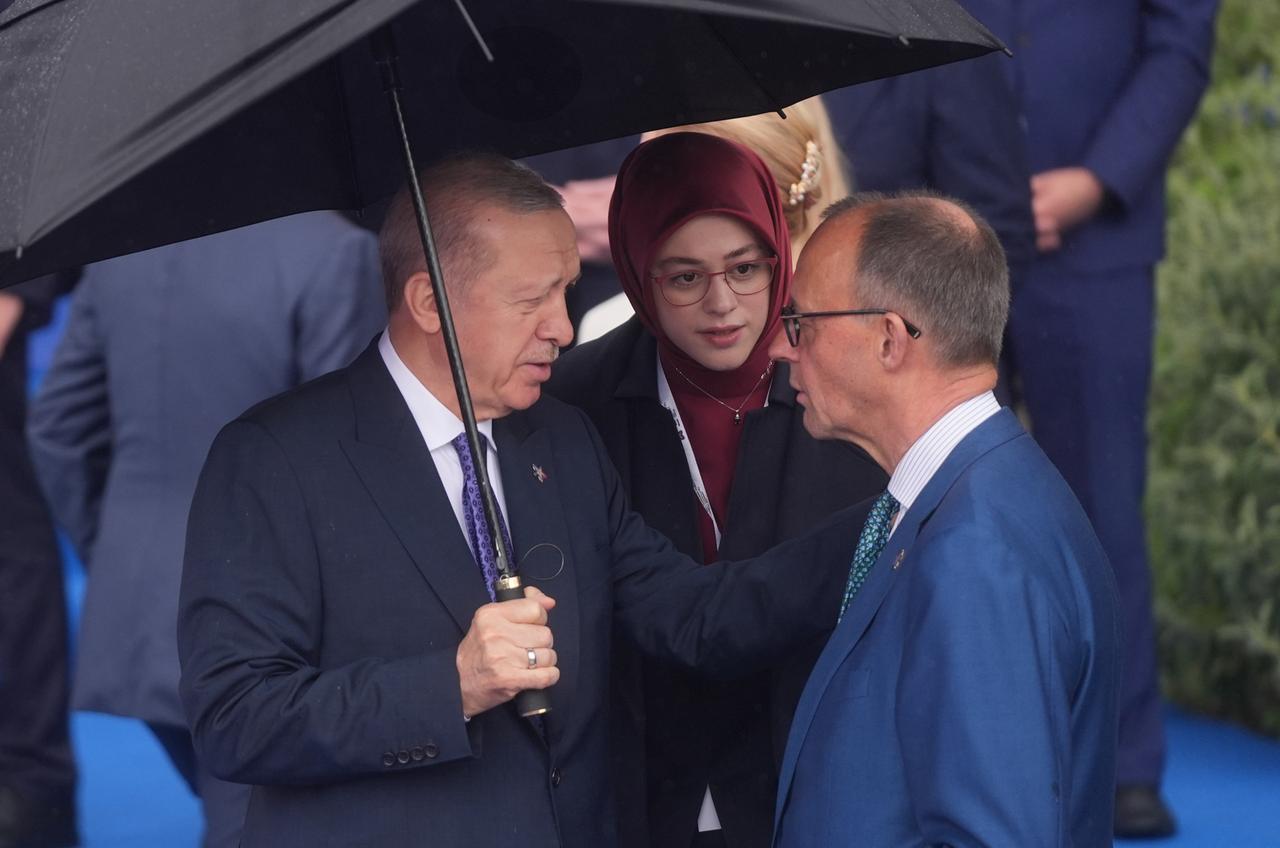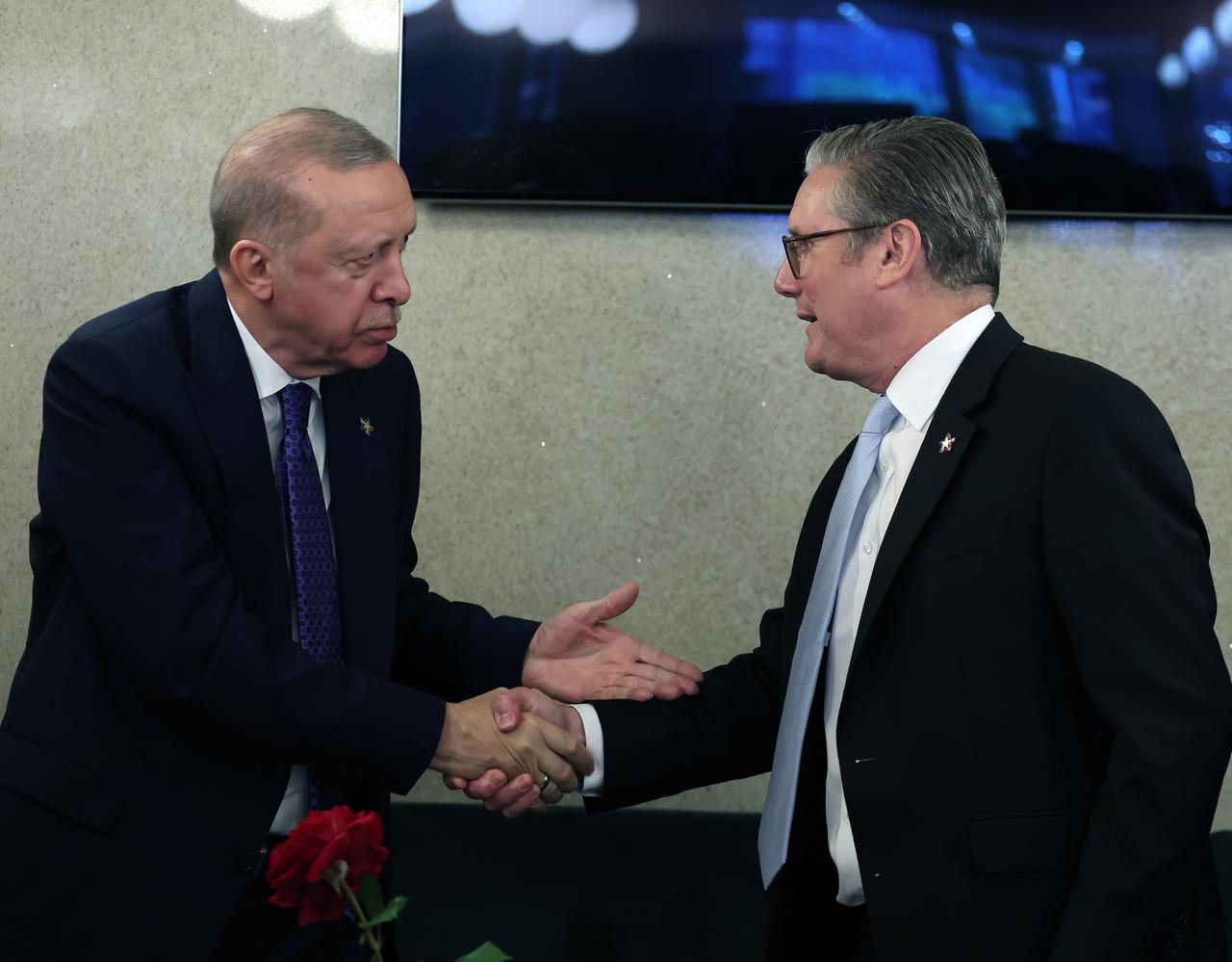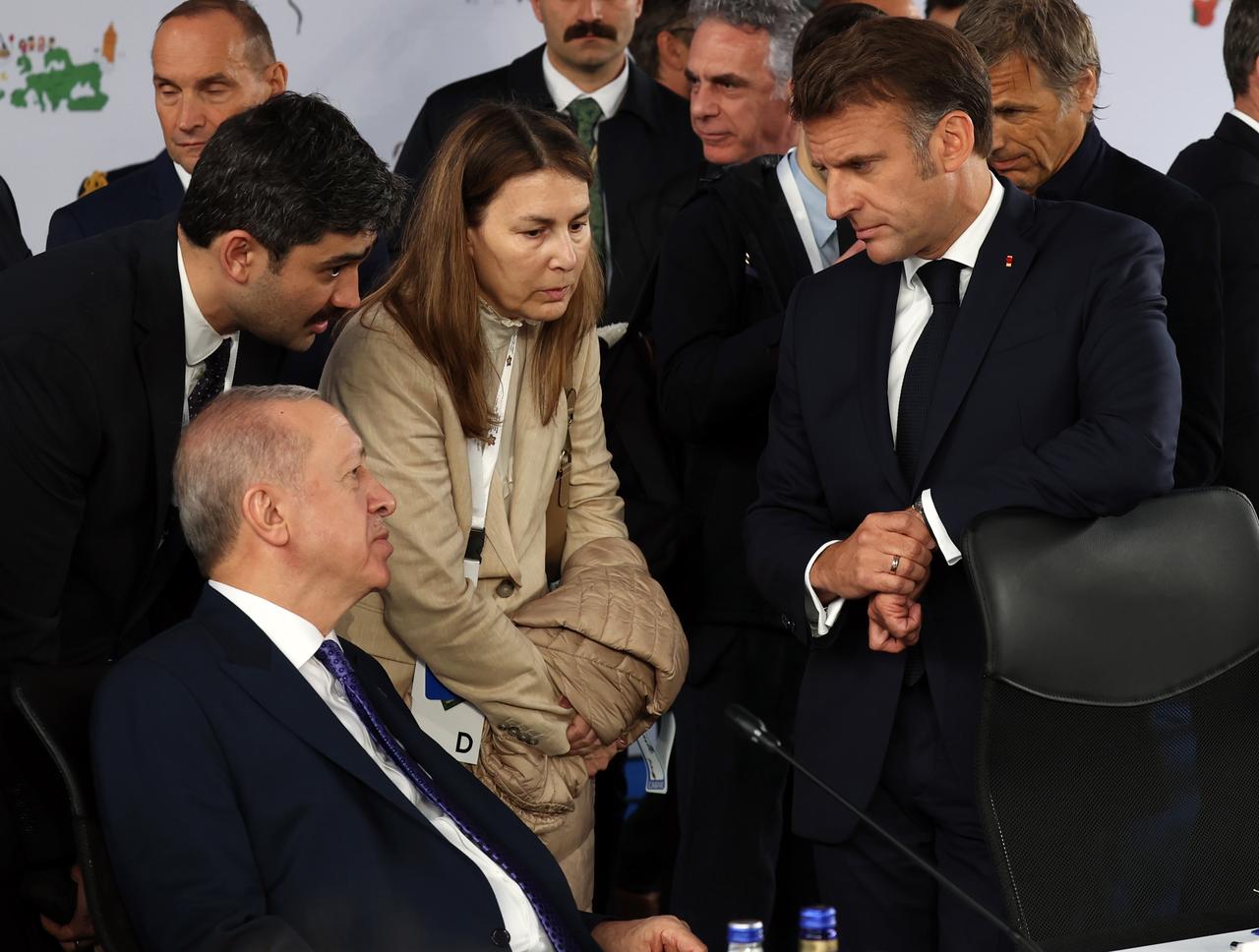
President Recep Tayyip Erdogan on Friday urged the European Union to update the Customs Union and revise Schengen visa practices, emphasizing that current restrictions limit economic integration and social mobility.
Speaking at the sixth European Political Community Summit in Tirana, Erdogan addressed European leaders on issues ranging from trade policy to regional security concerns.
"The visa practices such as Schengen, which limit the mobility of our citizens and, consequently, the circulation of goods, services, and capital, must be re-evaluated," Erdogan said during his address at the summit.

Erdogan emphasized that updating the Customs Union with the EU would strengthen supply chain security across the continent, highlighting the need for policy reforms that would benefit both Türkiye and European nations.
"As a European continent, we must start transformation at home based on principles of indivisible security, fairer distribution of prosperity," he noted.
"As we discuss the future of Europe’s security at this critical time, we find the EU's efforts to develop its defense industry beneficial," he also stressed.
The Turkish president also expressed support for the EU's efforts to develop its defense industry, calling these initiatives beneficial for regional security architecture.

During the summit, Erdogan urged European countries to show willingness in helping establish a ceasefire in Gaza, adding another dimension to the high-level discussions in Tirana.
On the Russia-Ukraine conflict, Erdogan stressed the importance of encouraging dialogue without imposing preconditions. Responding to a question from reporters about Russia-Ukraine peace negotiations, Erdogan said, "Together with my brother (Albanian Prime Minister Edi Rama), we will call for peace to the whole world from Albania."
"We believe that the opportunity before us must not be squandered. Dialogue channels between Ukraine and Russia must remain open," he said.
Erdogan also urged European countries to show the necessary willingness and interest in helping establish a ceasefire in Gaza. "Over 2 million people in Gaza have been condemned to hunger, and the international community's silence in the face of this tragedy is incompatible with human dignity," he said.
"Our main objective must be to implement a two-state solution as the only viable and sustainable path to peace," Erdogan added.
He emphasized that, given the sensitivity of the ongoing negotiation process, encouraging both Russia and Ukraine without imposing conditions is crucial for achieving a just and lasting peace.
Concerning Syria, Erdogan said the end of 14 years of conflict could usher in a hopeful new chapter for the country and region.
He welcomed Trump's announcement to lift sanctions on Syria, calling it a significant step toward the country's recovery.
He urged the EU to immediately lift its sanctions against the legitimate Syrian regime and provide financial assistance for reconstruction, which he said would also speed up the safe and voluntary return of displaced Syrians.
"This summit should mark a step toward a more stable, prosperous, and secure Europe," Erdogan concluded, expressing hope for collaborative solutions in an era of increasing global uncertainty.

Erdogan was welcomed by Albanian Prime Minister Edi Rama at Skanderbeg Square, where the summit was hosted. Inside the Opera House, the Turkish president was seen speaking briefly with several European leaders, including Danish Prime Minister Mette Frederiksen, Azerbaijani President Ilham Aliyev, and Kosovo President Vjosa Osmani.
The summit, themed "New Europe in a new world: unity—cooperation—joint action," brought together 47 heads of state or government along with EU institution leaders. Notable attendees included British Prime Minister Keir Starmer, French President Emmanuel Macron, Italian Prime Minister Giorgia Meloni, Spanish Prime Minister Pedro Sanchez, and German Chancellor Friedrich Merz.
International organizations were represented by NATO Secretary-General Mark Rutte, European Council President Antonio Costa, European Commission President Ursula von der Leyen, EU foreign policy chief Kaja Kallas, and Council of Europe Secretary General Alain Berset.
The gathering focused on European security, including support to Ukraine, European defense capabilities, and safeguarding democratic institutions across the continent.